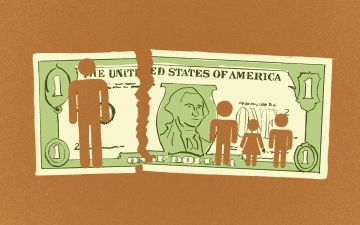In Baltimore, Parents Owe Hundreds of Millions in Child Support. Here’s How Other States Have Made Changes for the Better.
The Sun’s analysis found that parents owe a collective $233 million in 10 city ZIP codes, money that is largely considered uncollectable.







